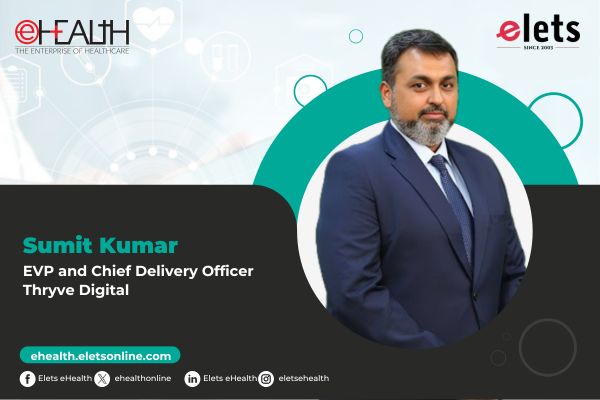
Chronic diseases dominate India’s health landscape
Chronic diseases, such as cardiovascular conditions, mental health disorders, diabetes, and cancer, have become the leading causes of death and disability in India. Hypertension and diabetes alone account for approximately 68% of all chronic illnesses in the country, underscoring the growing health burden. Other prevalent conditions include arthritis, respiratory diseases, neurological disorders, and cancer. Several risk factors—such as poor nutrition, air pollution, high blood pressure, high cholesterol, and obesity—contribute to the prevalence of chronic diseases in India, complicating management and outcomes.
Fedo Vitals report offers critical insights into challenges faced by patients
A new report by Fedo Vitals, an AI-powered health insights platform developed by Fedo, reveals several critical challenges individuals with chronic diseases face. Fedo, a health-tech startup, leverages artificial intelligence (AI) and machine learning (ML) technologies to assess health risks and predict the likelihood of future healthcare claims. This personalized approach offers valuable insights for both patients and providers, promoting proactive management of chronic conditions.

However, the Fedo Vitals report identifies major gaps in healthcare access, affordability, insurance coverage, and lifestyle management, shedding light on the critical obstacles that patients encounter throughout their healthcare journeys.

Economic Burden of Chronic Disease Management
Managing chronic diseases is a significant financial challenge for patients. According to the report:

- 64% of users find the cumulative cost of care—including doctor consultations, medications, diagnostic tests, and home care—overwhelming.
- 45% of users express concerns over insufficient insurance coverage, leading to high out-of-pocket expenses. This is particularly true for advanced therapies and prolonged treatments.
- 39% of patients reported that their families contribute financially or take time off work to provide caregiving support, indicating how chronic diseases can impact entire households.
The economic burden, combined with unpredictable healthcare costs, makes managing chronic conditions particularly difficult, often forcing patients to make tough decisions about continuing treatment.

Barriers to Healthcare Access
Access to specialized healthcare services remains a persistent issue, especially in underserved and rural areas:
- 28% of users live in areas with limited access to hospitals or specialists, leading to delays in diagnosis and treatment.
- 31% of users struggle to secure timely appointments with specialists for chronic conditions such as cardiovascular diseases and diabetes.
- 25% reported that overloaded healthcare facilities contribute to long wait times, negatively impacting the continuity and quality of care.
These access issues highlight the urgent need for healthcare infrastructure improvements, particularly in rural regions, to ensure early diagnosis and uninterrupted treatment.
Lack of Awareness and Challenges in Care Plan Management
The report also highlights gaps in awareness and education that complicate chronic disease management:
- 42% of patients lack adequate knowledge about their conditions or the importance of adhering to prescribed treatments and lifestyle changes.
- 36% of users find it challenging to navigate complex care plans, which often involve balancing multiple medications and lifestyle adjustments.
- 19% of users harbor misconceptions about their diseases or treatments, further hindering effective management.
This knowledge gap emphasizes the need for greater patient education and awareness initiatives to empower individuals to take control of their health.
Lifestyle Management: An Uphill Battle
Maintaining lifestyle changes—such as following a healthy diet and engaging in regular physical activity—remains a significant struggle:
- 48% of users report difficulty maintaining a nutritious diet, often due to ingrained habits or the high cost of healthy food.
- 34% of patients struggle to incorporate regular exercise into their routines, citing time constraints and physical limitations.
- 27% of users experience emotional barriers, such as anxiety and depression, which disrupt their ability to stick to prescribed lifestyle changes.
The report suggests that financial and emotional support mechanisms are crucial to helping patients achieve sustainable lifestyle modifications.
Challenges with Medication Adherence
Adhering to prescribed medications is essential for managing chronic diseases, but many patients face significant barriers:
- 22% of patients report challenges in remembering to take their medications regularly, especially those with multiple prescriptions.
- 15% of users skip or discontinue medications due to side effects.
- 37% of users ration their prescriptions or stop treatments altogether due to high medication costs, putting their health at further risk.
These findings emphasize the need for affordable medication solutions and adherence support programs to improve treatment outcomes.
Impact of Mental Health on Chronic Disease Management
The report highlights the strong link between mental health challenges and chronic disease management:
- 29% of users report experiencing depression or anxiety, which often interferes with their ability to manage their conditions effectively.
- 18% of users experience social isolation, further contributing to emotional distress.
- 21% of users feel overwhelmed by the continuous demands of managing their health, indicating the importance of mental health support for chronic disease patients.
The Role of Technology and Support Systems
Access to health-monitoring technologies and support systems plays a crucial role in chronic disease management, but many patients remain underserved:
- 30% of users do not have access to wearable health devices for continuous monitoring.
- 25% of patients are not engaged with digital health platforms, often due to limited internet access or unfamiliarity with technology.
- 12% of users report feeling overwhelmed by the constant notifications and tracking required by digital health tools, a phenomenon referred to as technology fatigue.
Support systems are equally important, yet many patients feel they lack adequate assistance:
- 26% of patients report insufficient support from family or friends.
- 18% of users cite caregiver fatigue as a significant issue, with family members experiencing burnout due to the demands of caregiving.
Key Takeaways
The Fedo Vitals report underscores the urgent need for healthcare providers, insurers, and policymakers to address the multiple challenges facing chronic disease patients. Key focus areas include:
- Affordable Care and Insurance Solutions: Developing insurance plans that reduce out-of-pocket expenses and cover advanced treatments.
- Improved Access to Healthcare Services: Expanding healthcare infrastructure in underserved areas and increasing the availability of specialists.
- Patient Education and Support Programs: Promoting awareness and simplifying care plans to help patients manage their conditions effectively.
- Holistic Lifestyle and Mental Health Support: Integrating mental health services into chronic disease management programs and offering support for lifestyle changes.
- Technology Integration and Caregiver Support: Making wearable health devices more accessible and providing support for caregivers to prevent burnout.
This comprehensive report by Fedo Vitals serves as a wake-up call for the healthcare industry, highlighting the need for collaborative efforts to improve the quality of life for chronic disease patients across India. Addressing these gaps will not only enhance patient outcomes but also reduce the long-term economic burden on families and the healthcare system.
Be a part of Elets Collaborative Initiatives. Join Us for Upcoming Events and explore business opportunities. Like us on Facebook , connect with us on LinkedIn and follow us on Twitter , Instagram.
"Exciting news! Elets technomedia is now on WhatsApp Channels Subscribe today by clicking the link and stay updated with the latest insights!" Click here!
















